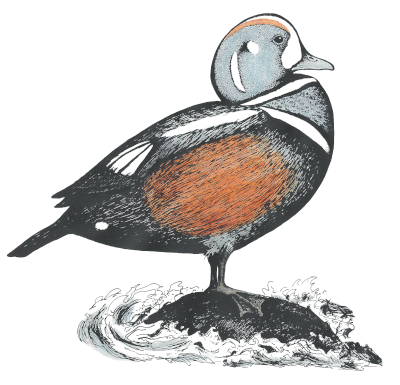
Brassicaceae - mustard family
[information to be added]
Mount Desert Island is home to 21 species in 15 genera that grow without cultivation. Click on a link below or scroll down for more information.
Alliaria (1 species)
Alliaria petiolata - garlic-mustard (occasional [see note 1 at bottom of page])
Barbarea (1 species)
Barbarea vulgaris - garden yellow-rocket (common)
Boechera (1 species)
Boechera stricta - Canada rockcress (rare)
Brassica (3 species)
Brassica juncea - Chinese mustard (uncommon)
Brassica nigra - black mustard (occasional)
Brassica rapa - rape (uncommon)
Cakile (1 species)
Cakile edentula - American sea-rocket (occasional)
Capsella (1 species)
Capsella bursa-pastoris - shepherd's-purse (common)
Cardamine (4 species)
Cardamine impatiens - narrow-leaved bitter-cress (rare)
Cardamine parviflora - small-flowered bitter-cress (uncommon)
Cardamine pensylvanica - Pennsylvania bitter-cress (uncommon)
Cardamine pratensis - pink cuckoo bitter-cress (uncommon)
Draba (1 species)
Draba verna - spring whitlow-mustard (occasional)
Erysimum (1 species)
Erysimum cheiranthoides - wormseed wallflower (occasional)
Hesperis (1 species)
Hesperis matronalis - dame's-rocket (occasional)
Lepidium (2 species)
Lepidium campestre - field pepperweed (uncommon)
Lepidium virginicum - poor-man's pepperweed (uncommon)
Raphanus (1 species)
Raphanus raphanistrum - wild radish (occasional)
Sisymbrium (1 species)
Sisymbrium officinale - common hedge-mustard (uncommon)
Subularia (1 species)
Subularia aquatica - American water-awlwort (rare)
Thlaspi (1 species)
Thlaspi arvense - field penny-cress (uncommon)
| leaf position | cauline leaf attachment to stem | special leaf features | petal color | petal length | |
| Alliaria | cauline only | petiolate | smell of onion/garlic when crushed | white | 4–7 mm |
| Barbarea | cauline | [?] | — | bright yellow | 5.5–8 mm |
| Boechera | basal, cauline | sessile | — | light purple or yellow | 5–10 mm |
| Brassica | cauline | petiolate to sessile | — | pale yellow, yellow | 6–11 mm |
| Cakile | cauline | [?] | fleshy | pale purple | 5–6 mm [wide] |
| Capsella | cauline | upper clasping, […] | — | white | less than 3 mm |
| Cardamine | basal, cauline | petiolate | compound | without petals, white, pink | to 15 mm |
| Draba | basal | — | — | white | [?] |
| Erysimum | cauline | [?] | with three-parted hairs | bright yellow | 3–5.5 mm |
| Hesperis | cauline only | [?] | — | white, pink, purple | 18–25 mm |
| Lepidium | cauline, basal | petiolate, sessile, clasping | — | white | 2–2.5 mm and [?] |
| Raphanus | cauline | [sessile, clasping ?] | with stiff hairs | pale yellow | flowers 10–20 mm wide |
| Sisymbrium | cauline, basal | [?] | — | pale yellow | to 4 mm |
| Subularia | basal only | — | needle-shaped | white | minute |
| Thlaspi | cauline, basal | sessile, clasping | — | white | to 4 mm |
Alliaria (garlic-mustard)
[information to be added]
Alliaria petiolata (garlic-mustard) - [information to be added]
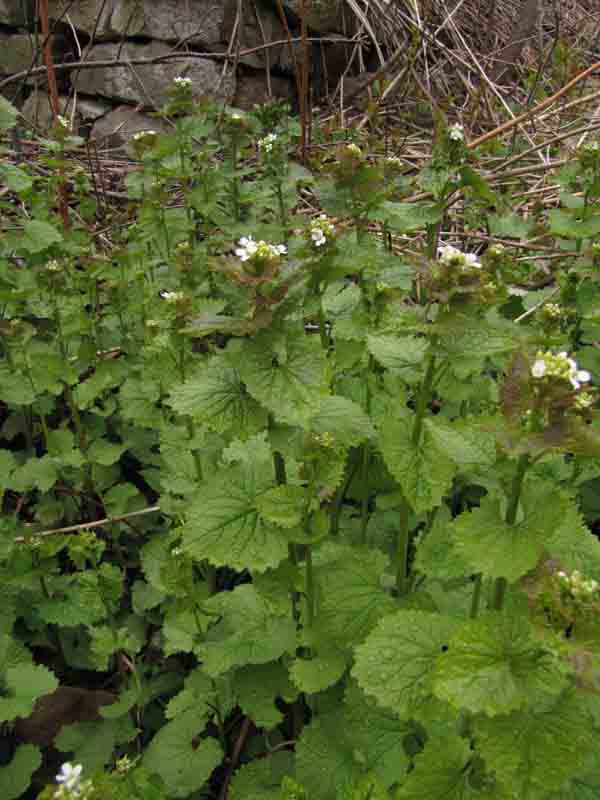
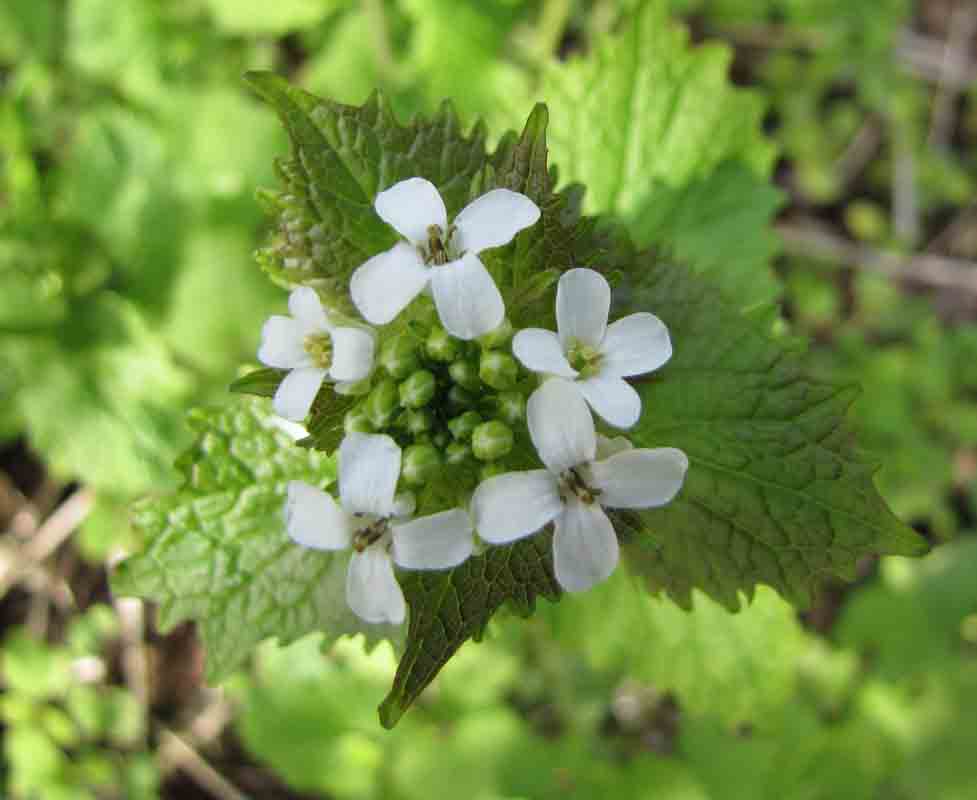
(click on images to enlarge)
Barbarea (yellow-rocket)
[information to be added]
Barbarea vulgaris (garden yellow-rocket) - [information to be added]
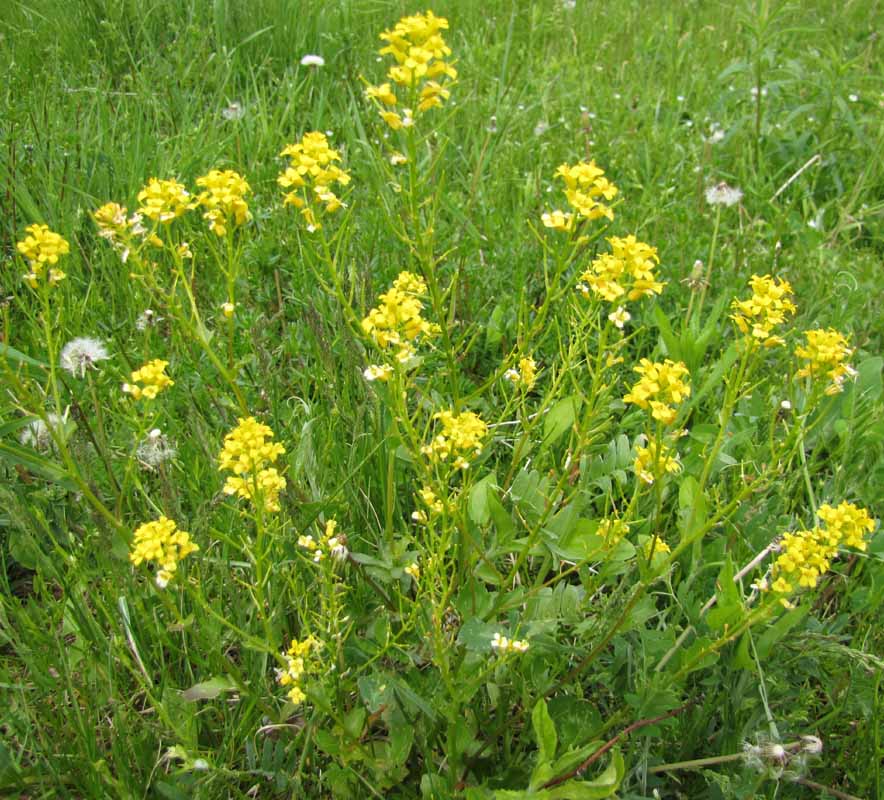
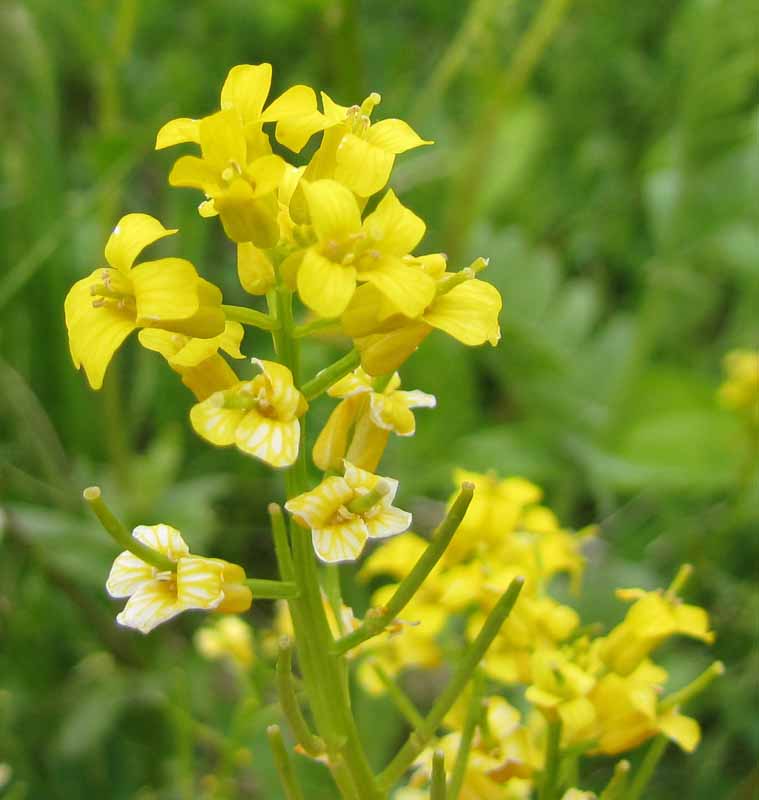
(click on images to enlarge)
Boechera (rockcress)
[information to be added]
Boechera stricta (Canada rockcress) - [information to be added]
Brassica (mustard)
[information to be added]
| fruit length | |
| Brassica juncea | 1–1.5 cm |
| Brassica nigra | 1–2.5 cm |
| Brassica rapa | 3–7 |
Brassica juncea (Chinese mustard) - [information to be added]
Brassica nigra (black mustard) - [information to be added]
Brassica rapa (rape) - [information to be added]
Cakile (sea-rocket)
[information to be added]
Cakile edentula (American sea-rocket) - [information to be added]
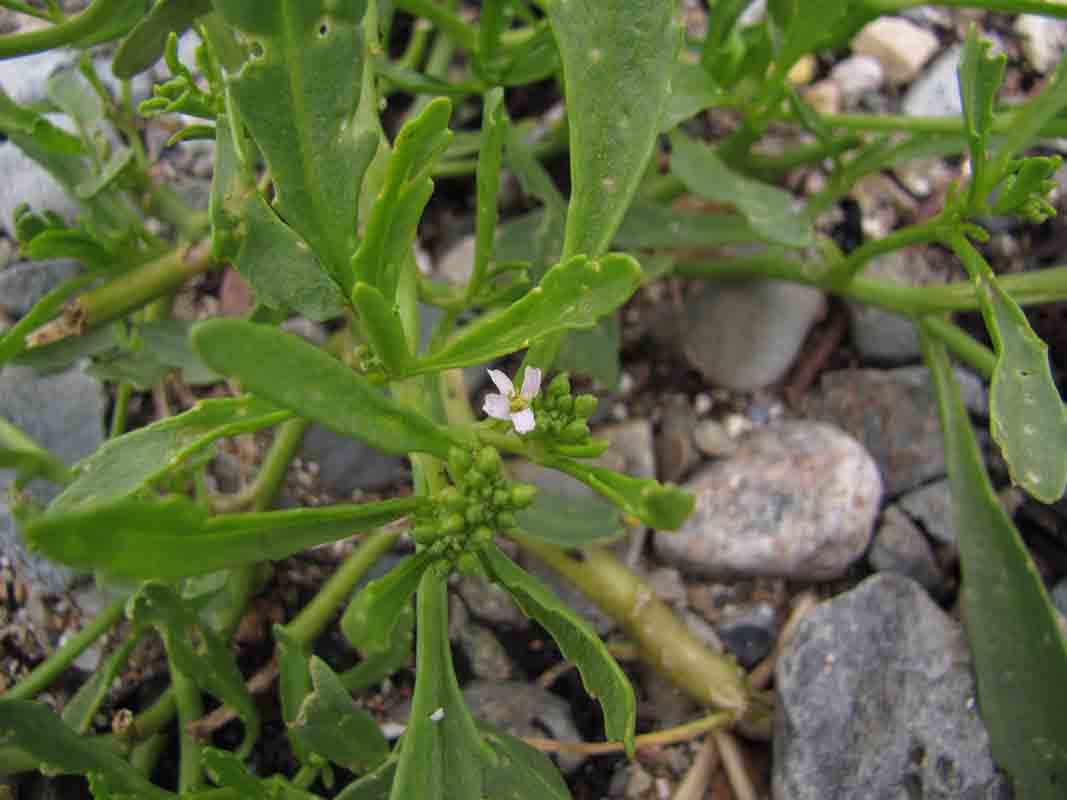
(click on image to enlarge)
Capsella (shepherd's-purse)
[information to be added]
Capsella bursa-pastoris (shepherd's-purse) - [information to be added]
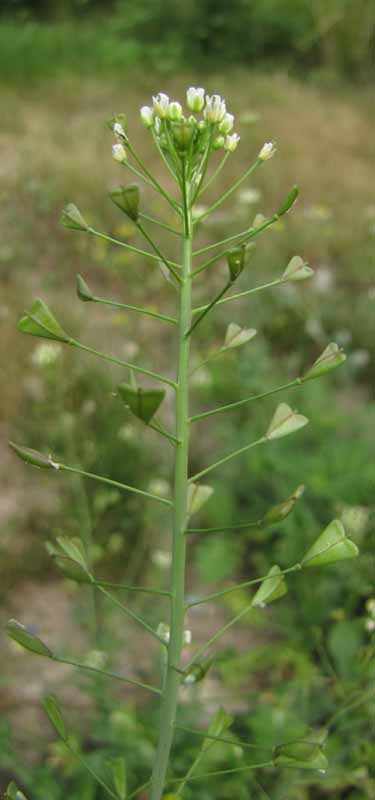
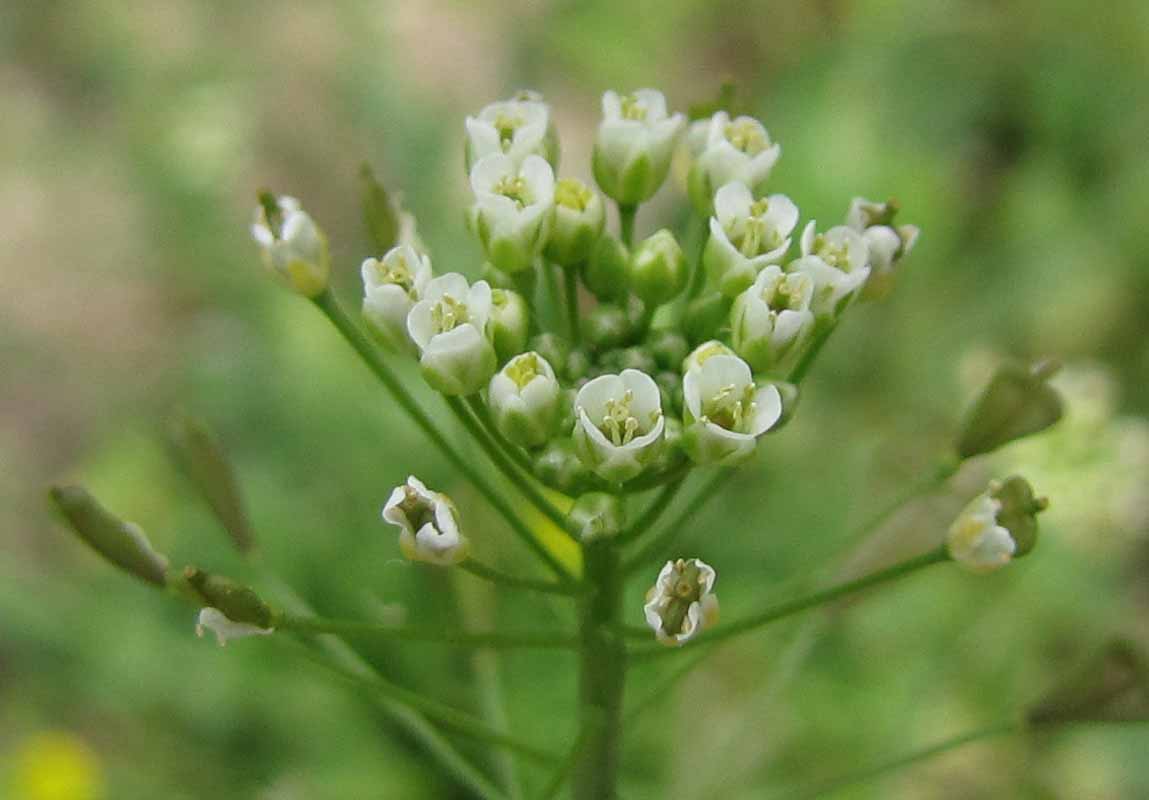
(click on images to enlarge)
Cardamine (bitter-cress)
[information to be added]
Cardamine impatiens (narrow-leaved bitter-cress) - [information to be added]
Cardamine parviflora (small-flowered bitter-cress) - [information to be added]
Cardamine pensylvanica (Pennsylvania bitter-cress) - [information to be added]
Cardamine pratensis (pink cuckoo bitter-cress) - [information to be added]
Draba (whitlow-mustard)
[information to be added]
Draba verna (spring whitlow-mustard) - [information to be added]
Erysimum (wallflower)
[information to be added]
Erysimum cheiranthoides (wormseed wallflower) - [information to be added]
Hesperis (dame's-rocket)
[information to be added]
Hesperis matronalis (dame's-rocket) - [information to be added]
Lepidium (pepperweed)
[information to be added]
Lepidium campestre (field pepperweed) - [information to be added]
Lepidium virginicum (poor-man's pepperweed) - [information to be added]
Raphanus (wild radish)
[information to be added]
Raphanus raphanistrum (wild radish) - [information to be added]
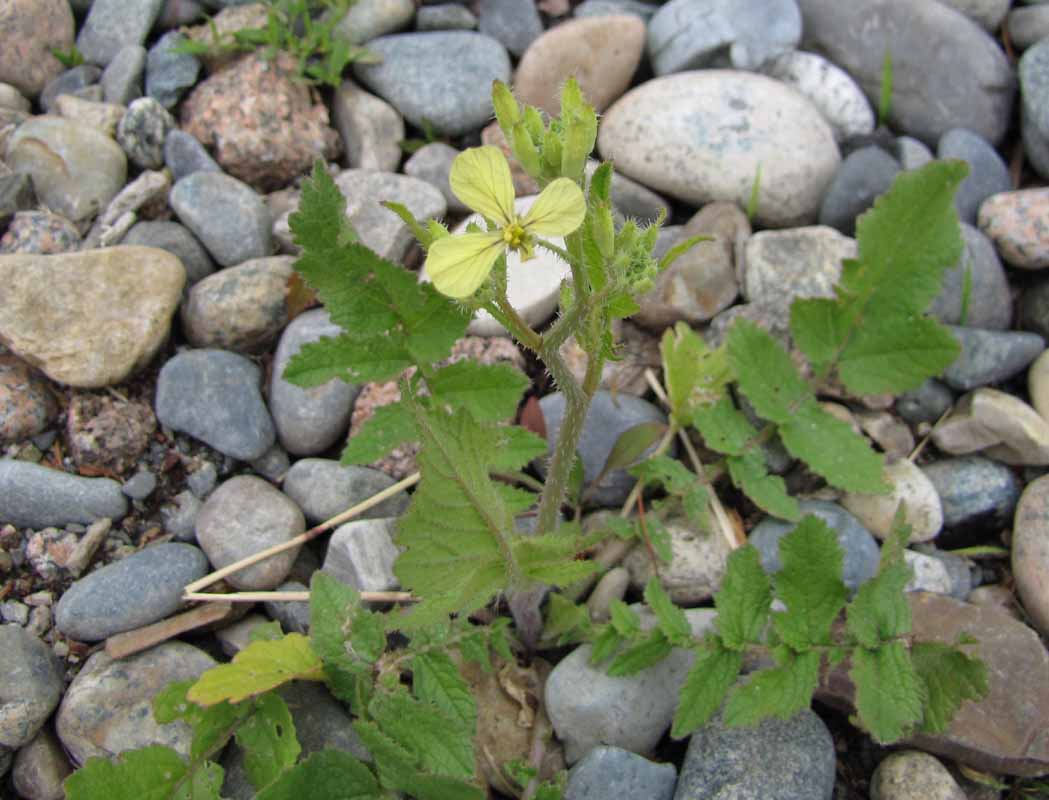
(click on image to enlarge)
Sisymbrium (hedge-mustard)
[information to be added]
Sisymbrium officinale (common hedge-musard) - [information to be added]
Subularia (water-awlwort)
[information to be added]
Subularia aquatica (American water-awlwort) - [information to be added]
Thlaspi (penny-cress)
[information to be added]
Thlaspi arvense (field penny-cress) - [information to be added]
Note:
1. Frequency designations are from the paper “Vascular flora of the Acadia National Park region, Maine” by Craig W. Greene, Linda L. Gregory, Glen H. Mittelhauser, Sally C. Rooney, and Jill E. Weber, published in the spring 2005 issue (vol. 107, No. 930) of Rhodora: Journal of the New England Botanical Club.